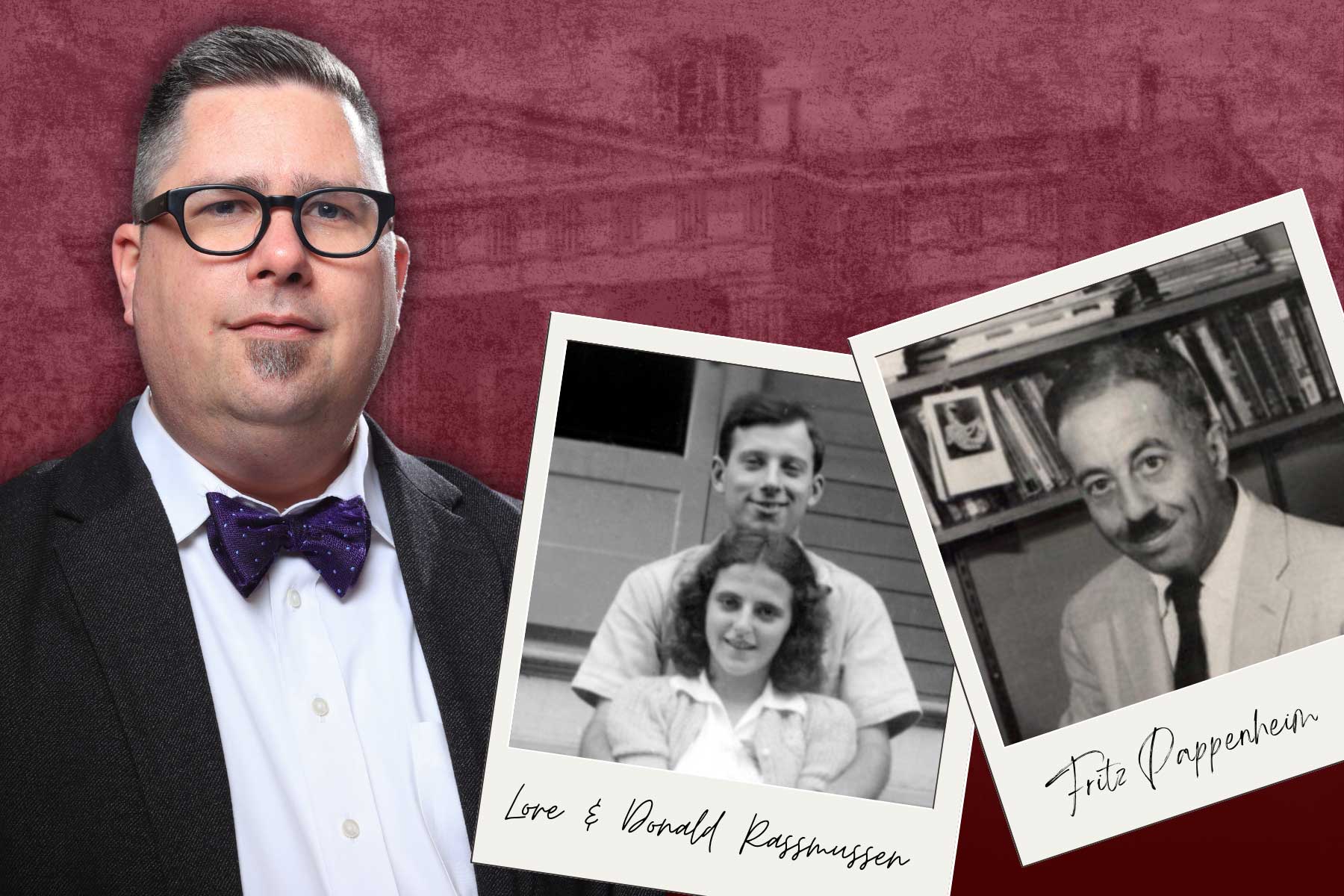
Perry H. Trice, MLIS, BFA, Special Collections Librarian and Interim Director of the Dr. William R. Harvey Museum of Art, represented Talladega College at the 138th annual conference of the American Historical Association (AHA), which took place from January 3 to 6, 2025, in New York City. The event attracted historians and scholars from various fields, providing a platform to discuss significant historical issues and share important research findings.
In his presentation, Trice focused on the remarkable journeys of two Talladega College professors, Lore Rasmussen and Fritz Pappenheim, both of whom narrowly escaped the Holocaust and achieved notable success in their academic careers. “My portion of the presentation was dedicated to the incredible journeys of Rasmussen and Pappenheim, who both lost their passports and had to sneak out of Germany. Their stories remind us of the personal struggles faced by intellectuals fleeing persecution,” Trice articulated.
Lore Rasmussen arrived in New York City as a teenager in 1938, having successfully secured a scholarship to study at the University of Iowa. She began her tenure at Talladega College in 1942 alongside her husband, Donald, who also served as a faculty member. An important aspect of Rasmussen's legacy was her courageous advocacy for social justice; she notably insisted on integrated travel when she took a group of Talladega students on a field trip to NYC, successfully forcing the Seaboard Railway Line to allow them to travel in the same rail car. This brave act of civil disobedience not only showcased her commitment to equality but also set a precedent for future integration efforts.
In contrast, Pappenheim's journey was fraught with hardship. He fled Germany in 1932 and initially immigrated to Spain, where he worked on behalf of the Catalan government, unaware that he was aligning with the losing side of the Spanish Civil War. After being expelled from Spain in 1938, he was forced to traverse the treacherous Pyrenees mountains into France, where he was detained in an internment camp. Despite these challenges, Pappenheim managed to secure passage to the United States in 1942 and began teaching at Talladega College in 1944.
Both Rasmussen and Pappenheim had a profound impact on Talladega College’s academic environment until 1951 when Pappenheim’s contract was controversially revoked on the ground of suspected communist sympathies. This action led to a significant uproar within the college community, prompting the Rasmussens to resign in protest. After leaving Talladega,
Pappenheim went on to become a professor at Cambridge College in Massachusetts, while the Rasmussens pursued teaching opportunities across Michigan, Pennsylvania, and eventually settled in Berkeley, California.
Pappenheim’s legacy continues to resonate today. Last year, his nephew, Robert Stein, visited the Talladega campus and expressed his joy in discovering that his uncle’s contributions to the college are still well-recognized and honored. This familial connection has reinforced the importance of remembering and preserving the histories of those who faced persecution and discrimination.
Trice emphasized the significance of the AHA conference, which provided an exceptional opportunity to spotlight the contributions of HBCUs like Talladega College in the broader academic discourse surrounding critical historical issues. “The panel discussion served as a powerful reminder of the need to address these historical narratives, especially in light of our current sociopolitical climate,” he noted. “It's crucial to revisit these painful histories and acknowledge the complexity of the academic experiences of those displaced by persecution.”
The AHA conference was held at the New York Hilton Midtown and the Sheraton New York Times Square and featured over 1,000 registrants from various academic disciplines. Admission to the Exhibit Hall required a 2025 meeting registration badge, and attendees were encouraged to follow health and safety protocols related to COVID-19. Trice remarked, "Given the audience's interest, I received numerous inquiries about Talladega College and our contributions to academia, indicating that our participation in this conference was both timely and impactful."
“This participation showcases Talladega College's continued commitment to meaningful scholarship and engagement with pressing historical issues,” Trice concluded. “I look forward to further opportunities to present our research and contributions at future conferences.”